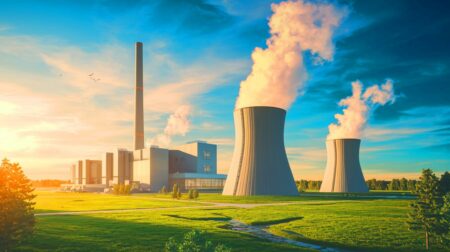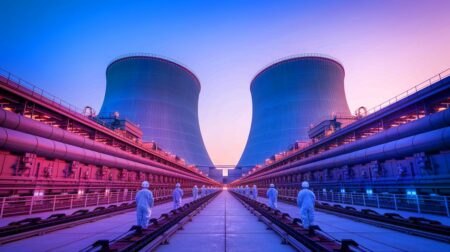With the United Arab Emirates’ Federal Authority for Nuclear Regulation (FANR) officially granting certifications to the first group of operators at the Barakah nuclear power plant, the country’s nuclear energy future is taking shape. The group became certified after three years of training that included stints in the United States, South Africa and South Korea, the country of origin of the Barakah’s APR-1400 reactor units.
While the certification has been hailed as a milestone for the country’s nuclear energy programme, the international nature of the training of the staff and construction process of the plant is another noteworthy part. When it comes to nuclear power, international cooperation has become increasingly important for the success of the industry, especially for newcomer countries like the UAE, who benefit from the expertise imparted on them by experienced users of nuclear power, such as the US, Russia, South Korea and France.

Cooperation is vital for the exchange of best practices, especially since it is these countries that are providing most of the reactor models that are – or will be – deployed in the MENA region. For example, Saudi Arabia will be receiving state of the art nuclear technology from Russia and China as the country tries to clean up its energy sector, make itself less dependent on oil and improve energy security. Apart from the UAE and Saudi Arabia, other countries are following suit, particularly Jordan and Turkey. Both plan to have reactors going online in 2024 and 2025 respectively.
One of the most important underlying factors for the successful establishment of the nuclear industry in the MENA region is financial support from governments. This is true everywhere, not only in the Middle East, but it highlights the difference to Europe, where nuclear investments are not regarded as worthwhile. An exception is Finland, whose nuclear industry is among the most advanced in the world.
“In Finland”, says Christpoher Eckerberg, VP of Innovation at Swedish utility Vattenfall, “the funding of course was there and that’s a very important role in all of nuclear. It needs to be a priority, and it needs to be funded.”
Still, safety is naturally also a main prerequisite for a successful transition to employing more nuclear power, seen in a more favorable light in the region than in Europe. In the case of the UAE, this is attributable to the country’s policy of transparency and focus on safeguarding for which it joined all necessary international conventions governing nuclear safety and liability before embarking on construction of its power plants.
With only a few suppliers in the market, international cooperation can also lead to greater standardization of safety regulations. This ultimately improves the entire safety framework. “One important point about international cooperation is safety, in which the key issue is standardization, because the way one operator here and another there manages the safety concept is not exactly the same”, explains Bernard Salha, director of France’s EDF.

“It means that with the same design, you may have different calculations and different results, which is not acceptable. Flying from one side of the Atlantic to the other and to Asia, the combined body regulation is different, so we should try to homogenize to some extent these regulations”, Salha argues.
Cooperation, particularly when nuclear newcomers are involved, should also go beyond the technicalities of operating NPPs to include research, since a lot is to be gained from pooling knowledge at a time when the industry needs to be more innovative than ever. “I think also cooperation between industry players, the industry and universities and the research community are pretty basic elements”, argues Eckerberg.
After all, finding a common solution to a common problem helps with standardizing a highly complex type of technology and could help making it more attractive to other countries – while helping to innovate. According to Eckerberg, “The process of getting that solution is very high-tech and there’s some cutting-edge R&D put into arriving at this conclusion.”
The UAE and Saudi Arabia are but the most recent examples of how international cooperation in the nuclear sector is advancing, and it is clear that the trend continues on a global scale. With France and China having agreed to advance cooperation in the field, it is clear that this is the way forward for global nuclear power.
Image: IAEA/Flickr
Did you like it? 4.5/5 (27)








